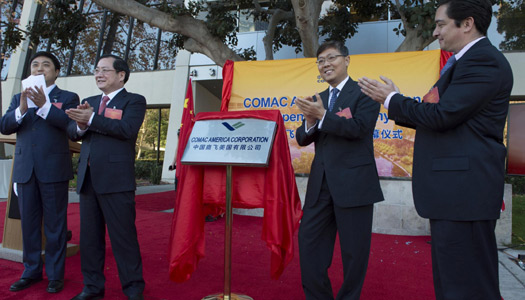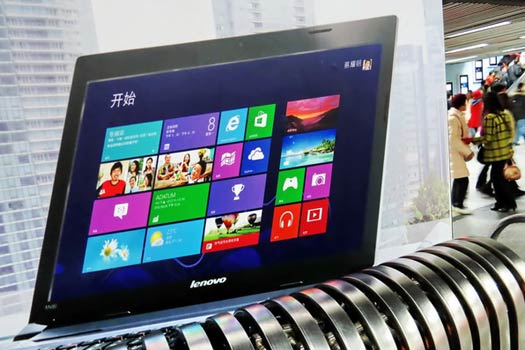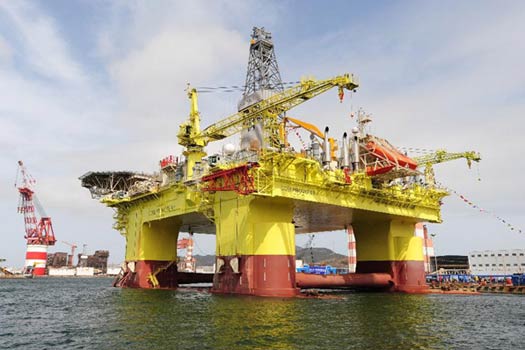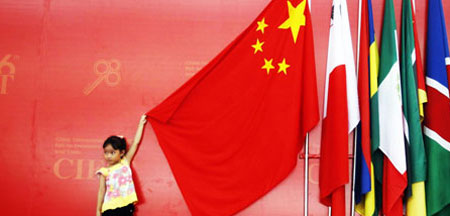Putting best foot forward in Africa
Updated: 2013-12-16 07:45
|
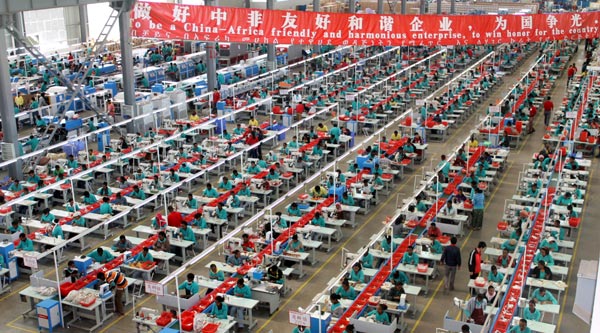 Staff members work at Huajian Group's Ethiopian plant. [Photo / Provided to China Daily]
|
Chinese shoemaker ups investment to create job opportunities in Ethiopia
Chinese footwear maker Huajian Group plans to make Ethiopia the hub for the global footwear industry and create more than 100,000 jobs locally in the next 10 years.
The company, which first moved to Ethiopia to offset rising labor and raw material costs in China, says it has teamed up with the China-Africa Development Fund and the Ethiopian Ministry of Industry to establish a light-manufacturing base in Ethiopia.
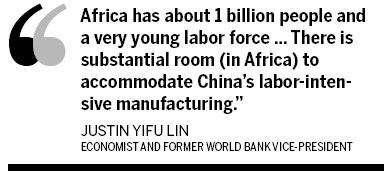
To be called the Ethiopia-China Light Manufacturing Special Economic Zone, the development received the green light from the Ethiopian government in October this year, says Wei Yongquan, general manager of Huajian Group.
Covering an area of 318 hectares near the Ethiopian capital Addis Ababa, the proposed zone will have facilities for shoemaking, other light manufacturing, commercial facilities and residential communities. It will house more than 50,000 families and generate revenue of $4 billion from exports.
According to Wei, Huajian has invested more than $6 million on shoemaking facilities since 2011 at the Oriental Industrial Zone in the Oromia region of Ethiopia.
A four-line shoemaking plant and a shoe materials plant in the park have helped the Chinese company make 837,4000 pairs of shoes in Ethiopia in the first 10 months of this year and generate revenue of $13.06 million.
Wei says that one of the biggest advantages of making shoes in Africa is the huge cost savings.
"The average monthly wage for a worker in Ethiopia is about 400 yuan ($66), while the same is around 3,000 yuan in Dongguan, Guangdong province, where the group is based, and around 2,500 yuan, in Ganzhou, an inland city in Jiangxi province.
"Since there are very few factories in Ethiopia, we do not have any problems in finding labor." Huajian's plants in Ethiopia employ 3,200 people.
The availability of local leather also provides cost savings of more than 30 percent compared with the Chinese mainland, Wei says.
Animal husbandry output accounts for about 20 percent of the gross domestic product of Ethiopia, while its livestock population is ranked among the best in Africa and the 10th in the world, according to an investment guide published by the country's Ministry of Commerce.
Huajian produces 18 million pairs of shoes a year, mostly on an original equipment manufacturing (OEM) basis for brands such as Nine West, Easy Spirit, Enzo, Sears, Coach, Guess, Marco Polo and Zara. More than 80 percent of its shoes are made of genuine leather and 95 percent are for export.
While labor and raw material costs have been the prime factors, Huajian has also gained from the considerable tax incentives provided by the Ethiopian government. According to the Ministry of Commerce, exports from Ethiopia enjoy duty-free access to the European Union and the United States. "Our Ethiopian unit makes OEM footwear for export to the US and European markets."
The company's African plans have received ample support from both governments, Wei says. "It took us just three months to start production."
More than 90 Ethiopian employees were sent to the company's plant in Ganzhou, Jiangxi province, for technical training and familiarization in corporate culture. The company has also deployed some key managerial personnel in Ethiopia to provide ground support, he says.
Related Links
Shoes, apparels made of candies on show in HK
Hemp shoes a hit in foreign markets
Wenzhou's shoe, clothing firms start to step out
Giant shoe attracts eyeballs
Sinopec drills deep into Africa
Connecting across Africa
CADFund keen to speed up investment activities in Africa
Fighting Africa's biggest epidemic
- BYD exports three electric cars to Thailand
- Grid gets first jolt of residential solar power
- US now largest buyer of China's exports
- China's outbound M&As on the rise
- Tobacco control may entail price, tax rises
- Quanzhou becomes pilot financial reform zone
- New automobiles shine at Geneva Motor Show
- World's longest high-speed rail 'on track'
- Jiugui Liquor involved in plasticizer scandal again
- Accident reignites school bus safety concerns
- China to revise labor law
- Trademark registration under scrutiny
- Dinner ban takes toll on liquor firms
- CIC tables bid for London's Chiswick Park
- Property buyers eye overseas market
- Call for law to protect personal information
- China to cut train ticket prices
- Christmas business
- Solar industry to get jolt from new policies
- KFC chicken under spotlight






